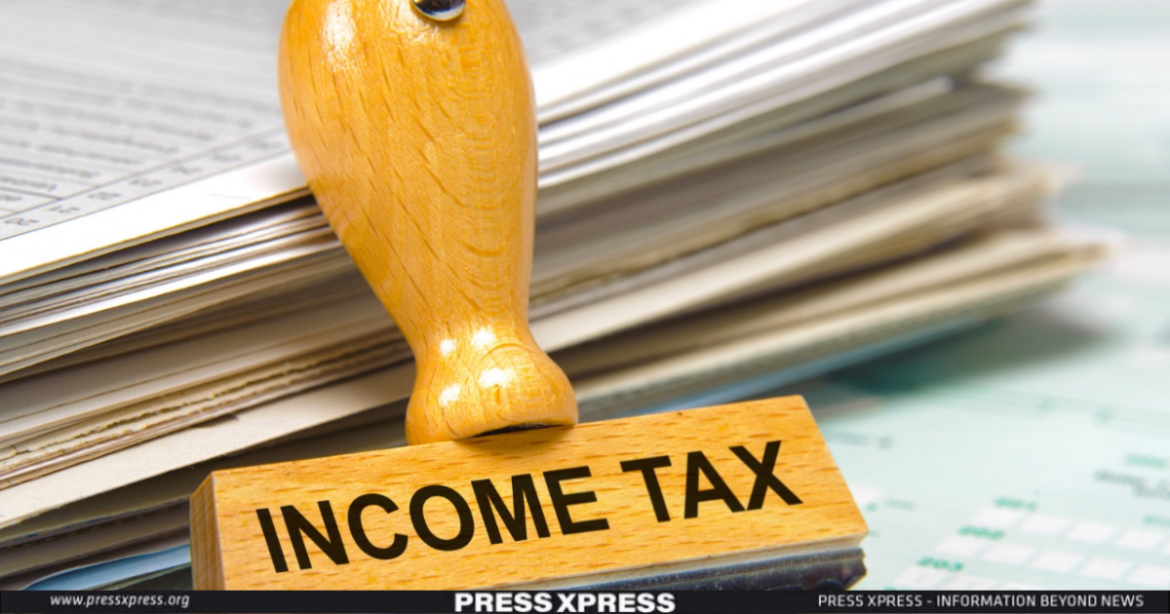Bangladesh has witnessed a remarkable increase in the number of income tax returns filed and the amount of tax collected in the tax year (TY) 2022-23. According to the National Board of Revenue (NBR), the filing of income tax returns increased by about 17% in TY 2022-23 compared to the previous TY, while the number of submission files increased by 14.47%.
You can also read: Entrepreneurs’ Rise: The Meteoric Journey of the Nation’s Private Sector
This year, Tk5,799 crore worth of tax was received as returns, which was 17% more than the previous fiscal year. What does this surge in tax returns mean for the country’s economy and development? How will it affect the government’s budget and expenditure? This article will analyze these questions and provide some insights.
Signs of a Growing Economy?

One of the possible reasons for the increase in tax returns is the growth of the economy and the income of the people. Bangladesh has been maintaining a steady economic growth rate of around 6-7% for the last decade, despite the challenges posed by the Russo-Uranian war, the Red Sea Crisis, and resultant inflation.
The per capita income of the country has also risen to $2,227 in FY 2022-23, up from $2,064 in FY 2021-22. As a result, more people have likely become eligible and willing to pay income tax, as they have crossed the minimum taxable income threshold of Tk3 lakh per annum.
Another factor that may have contributed to the rise in tax returns is the improvement in the tax administration and compliance system. The NBR has taken various initiatives to simplify the tax return process, such as introducing online filing, mobile apps, tax return preparers, and tax fairs.
The NBR has also launched a nationwide survey to identify potential taxpayers and bring them under the tax net. Moreover, the NBR has enforced the Income Tax Act 2023, which has submitted income tax returns mandatory for availing some 43 types of services, such as bank loans, utility connections, trade licenses, passports, and visas. These measures have increased the awareness and motivation of the taxpayers, as well as the efficiency and transparency of the tax authorities.
Increased Tax Returns Indicate an Increase in Income and Growth
The increase in tax returns not only reflects the economic performance of the country but also enhances it. By paying income tax, the taxpayers contribute to the national revenue, which is the main source of financing public expenditure. The government can use the tax revenue to invest in various sectors, such as infrastructure, education, health, social security, and defense, which are essential for the development and welfare of the country. The government can also use the tax revenue to reduce the fiscal deficit, which is the gap between the total expenditure and the total revenue.
The fiscal deficit of Bangladesh was 6.1% of GDP in FY 2022-23, which was financed by borrowing from domestic and external sources. By increasing the tax revenue, the government can reduce its reliance on borrowing, which will lower the debt burden and the interest payments.
Furthermore, the increase in tax returns can also stimulate the income and growth of the taxpayers themselves. By paying income tax, taxpayers can avail various benefits and incentives, such as tax rebates, tax credits, tax exemptions, and tax holidays, which can reduce their effective tax rate and increase their disposable income.
The taxpayers can also enjoy the public goods and services provided by the government, such as roads, bridges, schools, hospitals, and security, which can improve their quality of life and productivity. The taxpayers can also access the formal financial system, such as banks and capital markets, which can facilitate their savings, investment, and entrepreneurship.
Reduces Pressure on the Budget
The increase in tax returns can also reduce the pressure on the government’s budget, which is the annual plan of revenue and expenditure. The budget of Bangladesh for FY 2023-24 was Tk724,000 crore, of which Tk430,000 crore was the revenue target and Tk294,000 crore was the deficit target.
The revenue target was divided into two components: tax revenue and non-tax revenue. The tax revenue target was Tk378,000 crore, of which Tk154,000 crore was the income tax target. The non-tax revenue target was Tk52,000 crore, which mainly came from dividends, fees, and fines. The deficit target was financed by borrowing Tk214,000 crore from domestic sources and Tk80,000 crore from external sources.
The increase in tax returns can help the government achieve its revenue target, especially the income tax target, which is the largest component of the tax revenue. The income tax revenue can also increase the non-tax revenue, as the government can earn more dividends from the state-owned enterprises and banks that pay income tax.
By increasing the revenue, the government can reduce its deficit, which will ease the pressure on the borrowing and the debt. The government can also allocate more resources to the priority sectors, such as health, education, and social protection. The government can also create more fiscal space for implementing the Eighth Five Year Plan (2021-25) and the Vision 2041, which aim to transform Bangladesh into a developed and prosperous country.
Conclusion
The increase in tax returns in TY 2022-23 is a positive sign for the economy and the development of Bangladesh. It indicates that the country has overcome the adverse impacts of the Covid-19 pandemic and the natural disasters, and has maintained its growth momentum and income level.
It also indicates that the country has improved its tax administration and compliance system, and has increased its tax base and tax culture. The increase in tax returns can also boost the income and growth of the country and the taxpayers, as well as reduce the pressure on the budget and the borrowing. The government and the NBR should continue their efforts to enhance the tax revenue and the tax system and to ensure that the tax revenue is used efficiently and effectively for the benefit of the country and the people.


